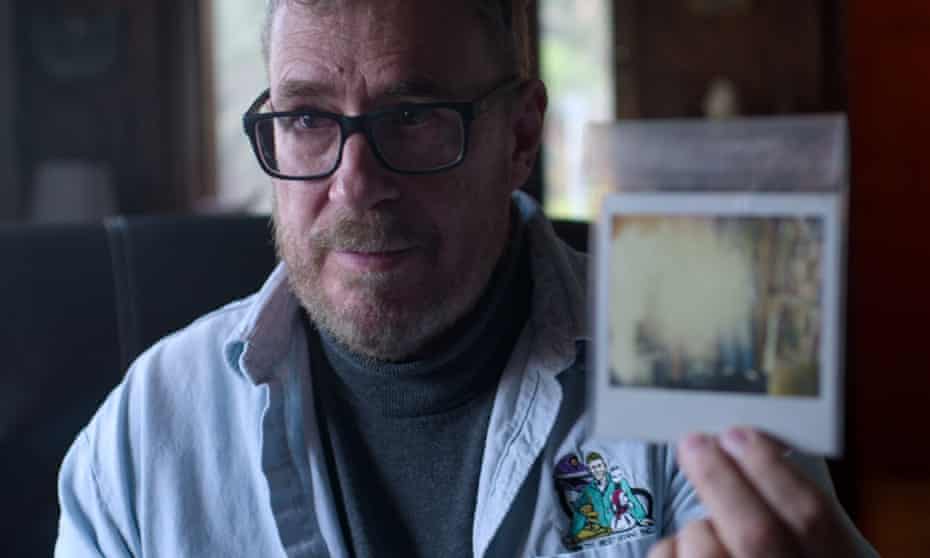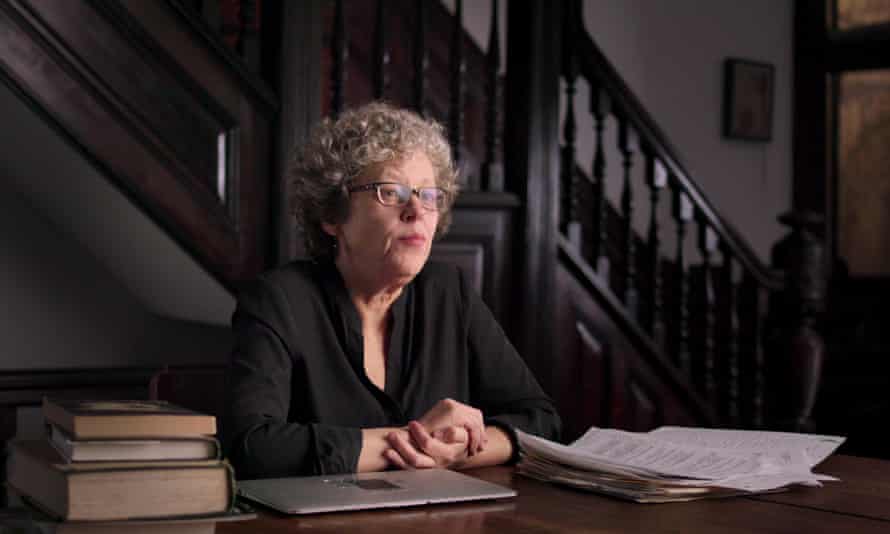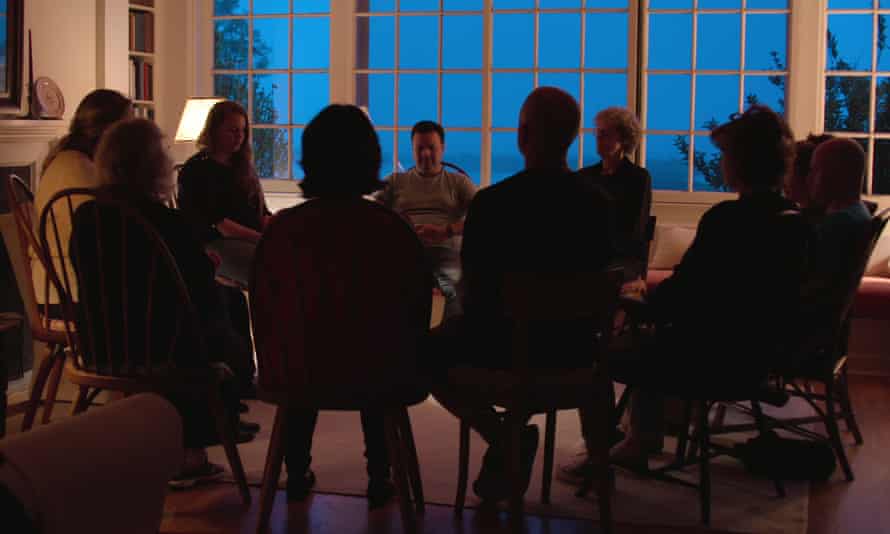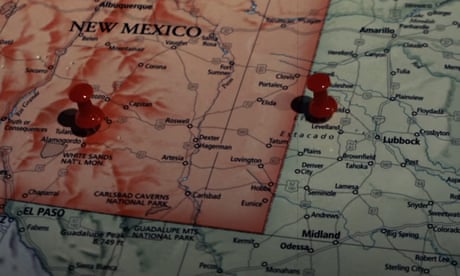##################
Forgetfulness saves us from remembering all of life’s crushingly dull moments as well as setting us free to think in abstract terms.
Forgetfulness can be a sign that your brain is more efficient, research finds.
###################
Maybe death isn't the end': can a TV series prove the existence of an afterlife?

In the Netflix docuseries Surviving Death, a ‘non-believer’ film-maker explores the possibility that something else might be waiting for us at the end
The Netflix docuseries Surviving Death has no shortage of paranormal activity. Mediums call on the dead. Seances try to manifest them. People claim to be reincarnated actors, pilots or murder victims while others describe feeling a heavenly embrace during near-death experiences. Over six hour-long episodes, the series pores over signs and evidence that there is something to experience beyond our last breath.
Surviving Death’s director, Ricki Stern, is ready for your skepticism. Her show practically invites it.
“I would call myself a sort of non-believer, but someone who was open to it,” Stern told the Guardian from her New York City apartment.
Stern, whose recent docuseries work includes Reversing Roe and Surviving Jeffrey Epstein, doesn’t shy away from cross-examining the mediums and witnesses who appear on-camera saying they speak to or have seen apparitions. The show never dismisses the possibility that a seance can use lighting tricks to conjure a ghost or a medium can dig up information on Facebook and pass it off as info from the great beyond.
But Stern’s series also builds a convincing and provocative case that our consciousness can and does continue beyond life as we know it. The director explained that she wanted to explore the possibilities of a great beyond through legitimate analysis.
To do that Stern followed the lead from journalist Leslie Kean’s book, Surviving Death, which the series is based on. Kean, who also appears in the series, brought a research-heavy scientific approach to discussing an afterlife, which can be a bit like using a stethoscope on a ghost. When the scientific world loves physical evidence, how do you build a persuasive argument for the metaphysical? Kean told the Guardian she enjoyed the inherent challenges of bringing investigative practices to find “truths that you can probably never get to”.
She also pointed out that she is simply following a distinguished lineage of people who have gone down this path for hundreds of years before her. Philosopher and psychologist William James, Sherlock Holmes author Sir Arthur Conan Doyle and Dr Ian Stevenson, who founded the division of perceptual studies at the University of Virginia in 1967, are some of the people who produced papers and manuscripts on paranormal investigations.
“They’re not necessarily believers,” Kean said. “But they’re people that take it seriously enough to want to study it.”
Doyle’s popular Victorian-era creation, Sherlock Holmes, was a skeptical, scientific mind. In novels like The Hound of the Baskervilles, Holmes would pull back the curtain and disprove theories involving the supernatural and paranormal. But Doyle was surprisingly more open to the possibility that there are people who could communicate with the dead, and even manifest them.
Surviving Death tries to find the tricky balance between that Sherlock skepticism and Doyle’s openness to spiritualism. The series also addresses how finding evidence of an afterlife almost always requires an open mind. You have to be willing to accept that a visit from a persistent cardinal or flickering lights can be signs from the dead. But Stern admitted that such openness is also grounds for dismissal: “You could just say, people are who are looking for signs will see signs.”
“Everybody has to decide for themselves whether something has that meaning for them or not,” Kean added. “With signs, it’s not really objective.”

When investigating life after death, objectivity isn’t really in the cards. With this particular subject, absolutely everyone is personally invested. Journalists and academics, like Kean and Conan Doyle, who explored the subject scientifically can’t help but be affected. Conan Doyle was nudged towards spiritualism following his son’s death. While researching for her book, a close friend to Kean died, bringing her work closer to home.
“If you have these profound experiences in the process of [investigating], then you’re sort of joining your journalism with your personal experience,” Kean said. “But that’s really the only way to study it at the same time. It’s hard sometimes to separate the two.”
Stern’s series departs from Kean’s book by focusing on personal stories about encountering the afterlife. More often than not, the subjects in the series are motivated by a personal loss to find signs of an afterlife.
Mike Anthony is a particularly fascinating character in Surviving Death. After losing his father some years ago, he became a hobbyist of sorts, visiting different mediums who claim to be communicating with his father. These visits have two purposes. Anthony is continuing a relationship with his father. But he’s also vetting and rating these mediums on their abilities, with a willingness to admit that some are probably hustling and taking advantage of his trust. He puts himself through a heavy rinse-and-repeat cycle of emotions between skeptic and believer and back.
“It is a bit of an emotional rollercoaster for him,” said Stern, who described Anthony as an audience surrogate. To discover the truth, he repeatedly made himself vulnerable to believing and often met with disappointment as a result.
Stern agreed that such emotional vulnerability is exactly what we “protect ourselves” from when we stay skeptical. Some of us are cynical about the possibility of an afterlife because we don’t want to set ourselves up for the most crushing disappointment.

The other side of that equation is hope.
“I just hope the series is going to help people open up their minds and question the nature of consciousness,” said Kean.
Her book is the perfect litmus test for the response that can be expected for the series, which, given its universal subject matter, has undeniable appeal for a wide audience. Readers reached out to Kean to express how they or someone they know found solace in the book while dealing with grief. Others reached out to talk about how they too experienced possible signs that they were never able to speak openly about before, because there’s a stigma around rational minds believing in an afterlife.
“I think the book opens a door for people to feel more comfortable talking about all this,” Kean explained. “I’m framing it in a way that’s extremely credible and research oriented.”
“We can’t answer the questions,” Kean added. “We don’t try to do that in the series. But it’s about [the possibility that] there is something that happens after we die. Maybe death isn’t the end.”
Surviving Death is now available on Netflix

No comments:
Post a Comment